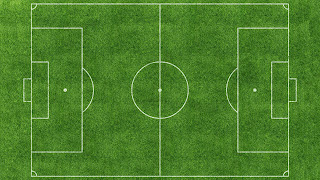_edited.jpg) |
| Narcissus by Caravaggio |
I had a very upsetting chat/fight/argument with a loved one this past weekend, and whereas I won't go into the personal details of the heated discussion, I would like to write about what I learned from the experience. But first, just a funny anecdote to begin.... This morning I told my boyfriend my intention to write about my lessons and he said, "Yeah, write about how you learned that you don't really listen." I laughed and said, "that wasn't what I learned!" I guess I can add and contemplate that (very possibly true) fact later. Now, onto my lessons (as I deem them)...
Lesson One: We are all right, in our own right.
Most arguments or conflicts happen because two people are not on the same page. They are each fighting their own fight, in the same ring as each other. It seems like they are disagreeing, but if we could look from each person's perspective, we would see that they are both right, in their own right.Lesson Two: Our own projections get in the way of being intimate with our loved ones.
Our projections come from our own personal myths, or in Enneagram-speak, our type biases. We see the world from this perspective and then look for evidence of our myths' reality.Lesson Three: "If you look for the bad in mankind expecting to find it, you surely will."
This is one of my favorite quotes is from the movie Pollyanna. Pollyanna is speaking to the minister of the town, who is used to preaching about fire and brimstone. Pollyanna's gift is teaching people about gratitude and how to find joy. She wears a locket, from her father, and in it reads the quote, supposedly coined by Abraham Lincoln.This quote took me years to understand. As a child, I didn't get why anyone would "look for the bad in mankind." I kept turning the phrase over and over in my head, and then, with time and experience, I began to realize what it really meant. It's about assumptions. It's also about finding evidence to confirm your own theories, or your own personal myth.
Try this: think about the color of red. Now look around you and look for objects that are red. All of a sudden, you'll see evidence of the color red everywhere. It will jump out at you and you'll be surprised at how many things are red! Well, the same is true for our assumptions, our projections, our type biases, and our own personal myths.
Lesson Four: My myth is melodramatic.
To be a little more specific, let me state my own myth, that I've only just begun to expose.Unless I am the ideal ________ (daughter/sister/girlfriend/friend/actress/server/consultant), I will disappoint the others in my life, they will not approve of me, they will not love me, and ultimately they will abandon me and I will be alone.Exaggerated, much? Yes, of course it is! It's my own personal myth. But until I had this very saddening talk with my loved one this past weekend, I didn't realize that this was my assumption, that this was my projection. As I put this myth onto my loved one, they were shocked and dismayed, personally offended and felt attacked. How could I even begin to attest that they were not supportive, encouraging, loving and proud of me? During the encounter, I kept trying to state that I was just expressing how I feel. And somewhere during the exchange, it hit me.
Lesson Five: Though my myth feels true for me, it is not necessarily true for another.
Yes, this is how I feel, but do I have real evidence to back it up? All of a sudden my assumptions and my projections began to dissolve. And this thought entered my mind: what if it isn't true? What if I've been operating under a false belief? What if, all the effort that I put into being the ideal daughter/sister/girlfriend/friend isn't necessary, because my loved ones will love me for who I am and not because I am some ideal.Lesson Six: Our myths are old, protective devices.
We all have them. But, what is both thrilling and terrifying is the notion that they may no longer be true. We don't have to play victim to these debilitating assumptions any longer.Lesson Seven: Learning Lessons is hard.
I wish I didn't have to learn these lessons by having a fight with my loved one, by feeling vulnerable and emotional and ashamed. Yet, it is what it is. I hope that next time, before I project my myth onto my loved one, I am able to first check-in with myself. I hope I am able to confront my loved ones in a non-critical, non-attacking way, and ask them gently how it is they do feel. Then, as my boyfriend suggested, I also hope I will be able to listen to them with an open heart as they respond.Does this resonate for you? What is your personal myth that you hold on to and project onto others? Are you ready to let go of it, or test it's validity? To examine these questions and more, schedule a Deepening Type Awareness session with me today!
Elizabeth Elkins is a Certified Enneagram Consultant. She offers individual, partner and group sessions, as well as workshops. For more information, go to www.enneagramnewyorkcity.com.






